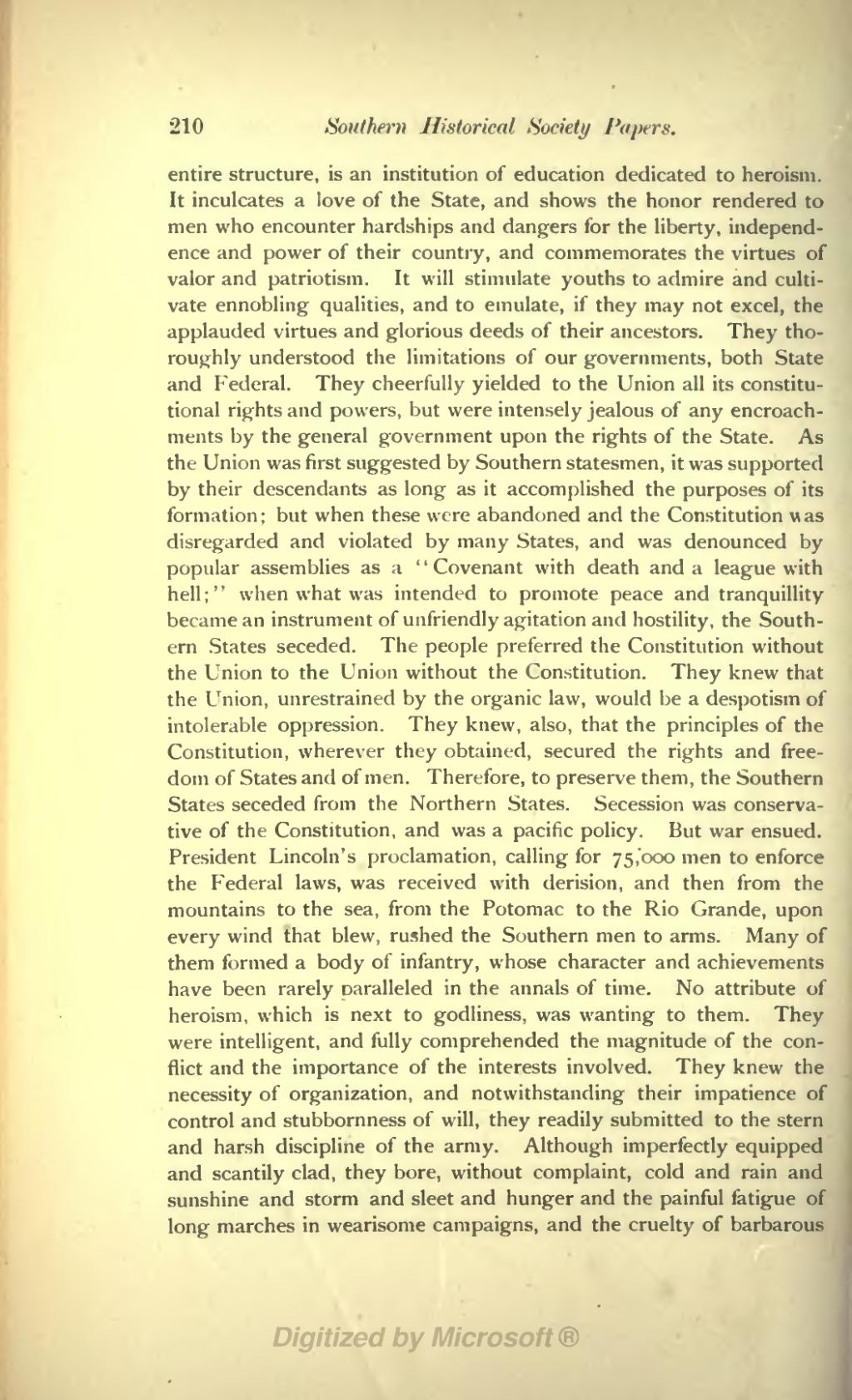entire structure, is an institution of education dedicated to heroism. It inculcates a love of the State, and shows the honor rendered to men who encounter hardships and dangers for the liberty, independence and power of their country, and commemorates the virtues of valor and patriotism. It will stimulate youths to admire and cultivate ennobling qualities, and to emulate, if they may not excel, the applauded virtues and glorious deeds of their ancestors. They thoroughly understood the limitations of our governments, both State and Federal. They cheerfully yielded to the Union all its constitutional rights and powers, but were intensely jealous of any encroachments by the general government upon the rights of the State. As the Union was first suggested by Southern statesmen, it was supported by their descendants as long as it accomplished the purposes of its formation; but when these were abandoned and the Constitution was disregarded and violated by many States, and was denounced by popular assemblies as a "Covenant with death and a league with hell;" when what was intended to promote peace and tranquillity became an instrument of unfriendly agitation and hostility, the Southern States seceded. The people preferred the Constitution without the Union to the Union without the Constitution. They knew that the Union, unrestrained by the organic law, would be a despotism of intolerable oppression. They knew, also, that the principles of the Constitution, wherever they obtained, secured the rights and freedom of States and of men. Therefore, to preserve them, the Southern States seceded from the Northern States. Secession was conservative of the Constitution, and was a pacific policy. But war ensued. President Lincoln's proclamation, calling for 75,000 men to enforce the Federal laws, was received with derision, and then from the mountains to the sea, from the Potomac to the Rio Grande, upon every wind that blew, rushed the Southern men to arms. Many of them formed a body of infantry, whose character and achievements have been rarely paralleled in the annals of time. No attribute of heroism, which is next to godliness, was wanting to them. They were intelligent, and fully comprehended the magnitude of the conflict and the importance of the interests involved. They knew the necessity of organization, and notwithstanding their impatience of control and stubbornness of will, they readily submitted to the stern and harsh discipline of the army. Although imperfectly equipped and scantily clad, they bore, without complaint, cold and rain and sunshine and storm and sleet and hunger and the painful fatigue of long marches in wearisome campaigns, and the cruelty of barbarous
Page:Southern Historical Society Papers volume 26.djvu/220
Jump to navigation
Jump to search
This page needs to be proofread.
210
Southern Historical Society Papers.
